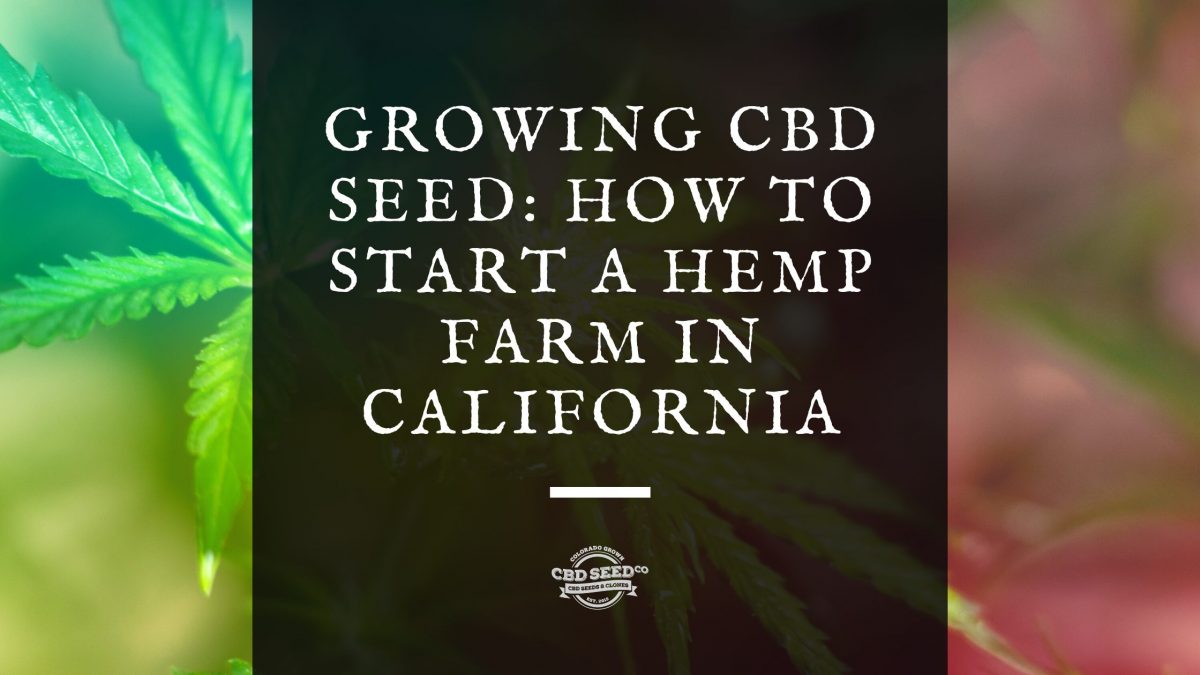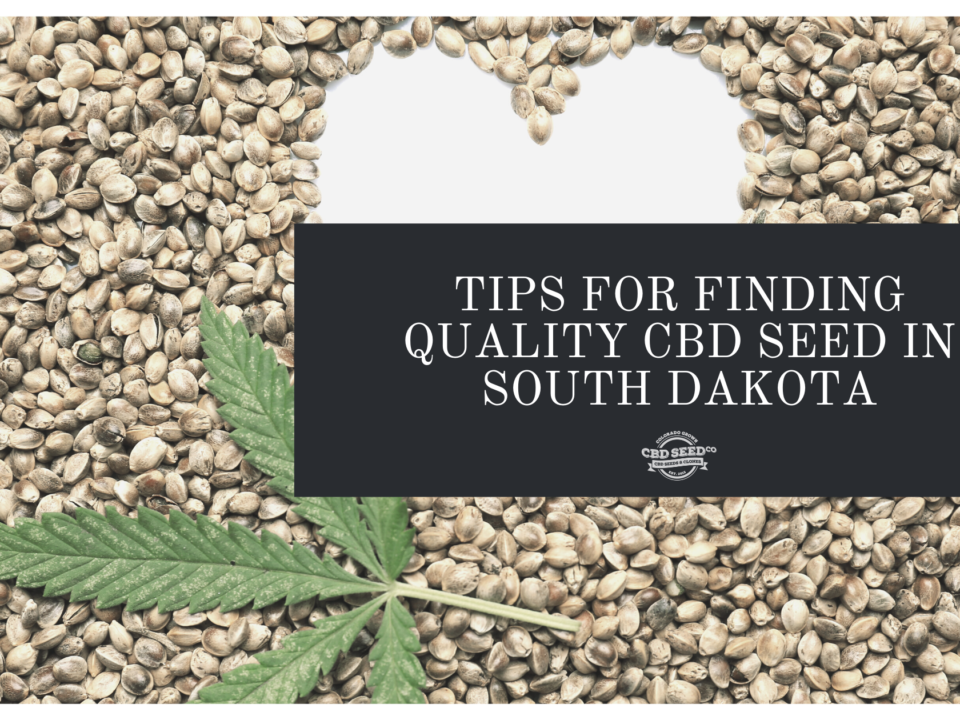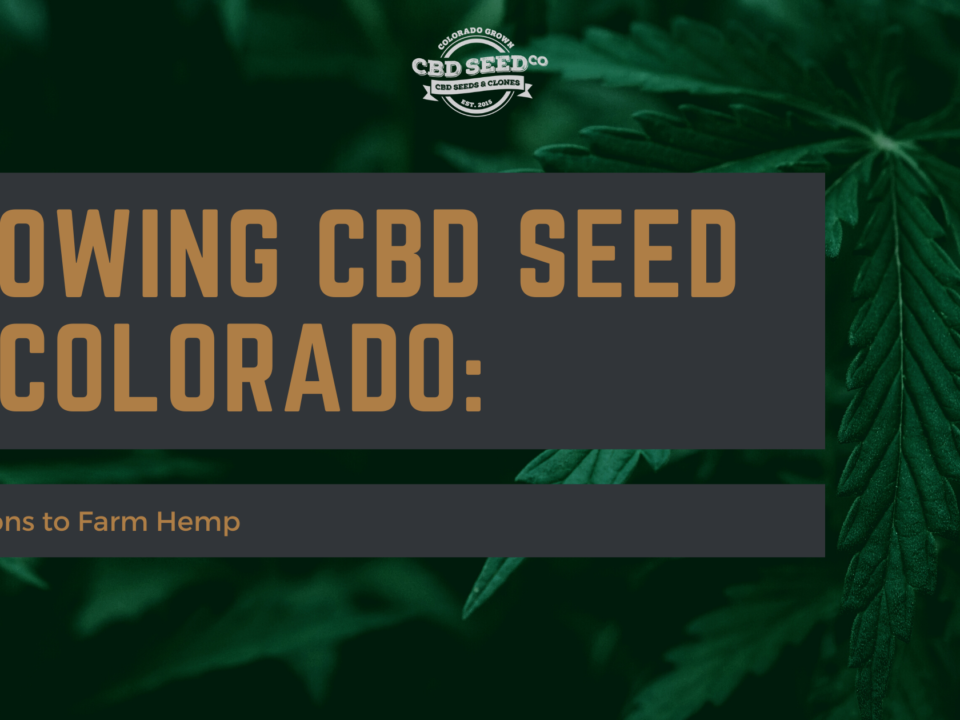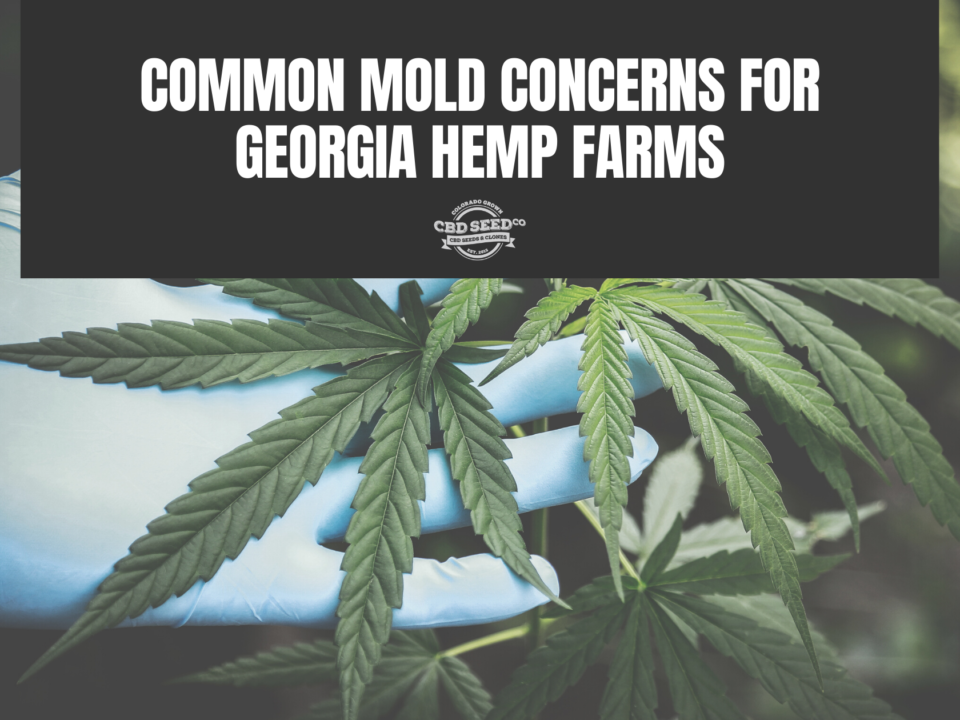Growing CBD Seed: How to Start a Hemp Farm in California

8 Common Hemp Farming Mistakes When Planting CBD Seed In Illinois
September 11, 2020
The Steps to Take Before Planting CBD Seed In Connecticut
September 17, 2020Now that hemp cultivation is legal in all 50 states, there are more and more farmers that are interested in starting hemp farms. California has a well-established hemp regulatory program and also offers a wonderful climate for successfully growing this crop. With forecasts that the hemp market could reach $26.6 billion in the US by 2025, it’s no wonder why so many farmers are looking into growing hemp for CBD production. In order to create a long-term successful hemp farm, it’s important that you have a full understanding of the market, regulatory requirements, as well as the cultivation requirements of this crop. Here’s how to get started with growing CBD seed in your new California hemp farm.
The Steps for Starting a California Hemp Farm for Growing CBD Seed
- Do your research: While it can be easy to rush into planting your first seed, it’s crucial to take the time to do your research. Hemp cultivation can be difficult in regards to nutrients, lighting, soil requirements, and more– farmers need to learn everything they can about hemp farming as well as the local and federal regulations. Take the time to research online, consult with experienced hemp farmers, and speak to your CBD seed supplier about specific strain requirements. Another good resource is looking for the hemp associations in California. Having a network of local hemp farmers can provide the additional support and guidance that you need.
- Set your hemp goals: Some farmers are only looking to grow industrial hemp for the various applications of textiles, hempcrete, food production, etc. while other farmers would like to grow hemp specifically for CBD production. It’s best to set your goals first in order to set yourself up for success. Make sure you know what your end goal is so you’re able to purchase the right hemp seed and create a corresponding plan.
- Identify your potential clients: It’s always ideal to have customers set up before you harvest your hemp crops in order to streamline efficiency and optimize biomass freshness and quality. Taking the time to find your clients first gives you the opportunity to plan which strains of CBD hemp you’ll need to grow. For example, if you find a CBD manufacturer that’s looking for smokeable hemp flower with specific terpene profiles, you’ll be able to gain a competitive advantage over other farmers by finding the CBD seeds you need for this client. Or you may even find a manufacturer who’s interested in creating CBG products– you can easily plant CBG-rich seeds, ensuring you lock in that customer.
- Create a hemp farm business plan: While writing a business plan can be difficult and may seem outside your wheelhouse, it’s an important step to inspire yourself and really develop something as a proof of concept test. This gives you the opportunity to find problems during the planning stage as opposed to while you’re already cultivating your CBD seed. These are some key components that you’ll want to include in your business plan: a SWOT analysis, sales strategy, organizational structure, local hemp market overview, operating plan, and financial plan. We always recommend keeping your profits estimate modest. While the CBD hemp industry can be very lucrative, chances are that it will be unlikely for first-time farmers to achieve a high level of return. Keeping your estimates reasonable ensures that you’ll be able to always meet your expenses. We’re always happy to help provide more guidance if you are struggling with your business plan.
- Create a testing and compliance plan: Unlike other industries, hemp farming has its own unique challenge of legal restrictions under the USDA’s guidelines. All hemp cultivated in California and the rest of the nation must contain 0.3% THC or less. Hemp farmers are responsible for testing your crops to ensure this compliance. We recommend having your crops tested about a month after germination and subsequently every two weeks. Testing more frequently as you get closer to harvest is always a good idea as well. Find a reputable independent, third-party lab for testing procedures– if you can’t find one locally, it’s definitely okay to look at different cities and even states.
- Develop your irrigation plan: Hemp can utilize a multitude of different irrigation systems ranging from subsurface irrigation to flood irrigation. Take this step to discover which system is ideal for your farm, take into account the impact of the system on your overall costs, and purchase a new one if necessary.
- Get your hemp cultivation license: Each state is responsible for hemp farming licensing. You’ll need to submit the proper application, paperwork, and fees to the California government. More information on the requirements can be found here. Make sure that you don’t need any additional licensing based on the county or local city you plan on starting your hemp farm in. Always feel free to consult with your lawyer to make sure all of your paperwork is in order.
- Invest in labor and equipment: Hemp is known for being a labor-intensive crop. Make sure you have the team you need to help you watch out for pests, cull male plants (if you’re planting generic CBD seed), and maintain the proper field condition for your crops. Your hemp fields should always be checked on daily. Specialty equipment is also needed for certain aspects of cultivation– make sure you have all of the equipment you need ready to go.
- Prepare your fields: Before you start sowing your fields, it’s important to have your soil tested. Having the proper essential macronutrients in your soil sets your hemp up for success. Make sure to have your soil tested for elemental sulfur, rock phosphate, and potassium sulfate to make sure the levels aren’t too high. Your soil should also be light and airy before planting– dense, wet soil can prevent stable roots as well as the right amount of oxygen and drainage.
- Buy your CBD seed: Now that you have everything ready to go, the last step is purchasing the right CBD seed. If you’re planning on growing hemp for CBD production, you’ll need to buy seeds that were bred for this purpose. Always purchase known genetic strains in order to properly plan your nutrient and lighting regimen. Do your research and only purchase CBD seed from a reputable supplier with COAs.
Work with California’s Leading CBD Seed Supplier
CBD Seed Co. is honored to be the leading CBD seed supplier serving the state of California. Work with our incredible hemp farmers to create your own successful farm. For more information regarding how to start your own hemp farm, please contact us!





